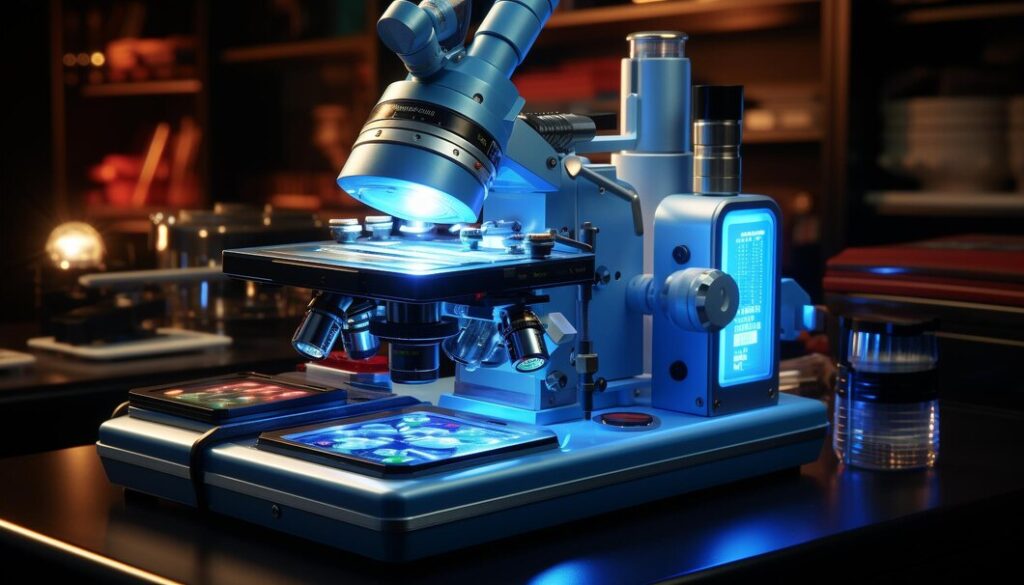Pros And Cons Of Digitalization In The Lab
by Mony Shah Technology 16 January 2024

In recent years, we’ve witnessed a significant transformation in the realm of scientific research. This change is largely driven by the adoption of digital technology in laboratories worldwide. We are now entering a new era of research, marked by increased efficiency and a wave of innovative methods.
It has changed the fundamental methods of designing, executing, and analyzing experiments. A study by Accenture found that laboratories adopting and integrating digital technologies at a large scale have observed notable improvements. This shift brings several key benefits: quicker access to data, fewer manual tasks, and enhanced collaboration among researchers.
These advancements highlight the critical role of digital tools in refining research techniques, simplifying complex tasks, and improving processes that were once subject to inefficiency and human errors.
In this article, we’re going to explore the profound impact of this digital revolution. We’ll focus on both the tremendous opportunities it offers and the challenges it introduces to conventional lab practices.
Enhanced Precision and Efficiency
One of the most noticeable advantages of digitalization in the lab is the significant boost in precision and efficiency it brings. A prime example of this is the utilization of tools like the single cell seeder. This innovative device exemplifies how digital technology can refine the accuracy of experiments, allowing researchers to manipulate and study individual cells with unprecedented precision.
Beyond this, digitalization also streamlines laboratory processes, significantly reducing human error. Automation has transformed mundane and repetitive tasks, ensuring consistency and reliability in experiments that previously required meticulous manual effort.
Improved Data Management and Accessibility
In the contemporary digital landscape, the management of data in laboratory settings has undergone significant transformation. Advanced data management systems have emerged, enabling researchers to store extensive volumes of information in an efficient manner.
These systems provide robust data security while also ensuring ease of access, thereby streamlining the retrieval and analysis of historical data. The contribution of cloud storage in this context is paramount. It supports effortless sharing of data among scientific professionals, promoting collaborative efforts and accelerating the progress of scientific research.
Advanced Research Capabilities
The advent of digitalization has laid the groundwork for incorporating advanced technologies like artificial intelligence and machine learning into laboratory research. These advancements have greatly broadened the scope of scientific inquiry, enabling researchers to conduct complex experiments and simulations that were previously unimaginable.
AI, with its robust data analysis capabilities, plays a key role in interpreting vast amounts of data. It efficiently identifies patterns and provides insights, contributing to pivotal scientific breakthroughs. This progress in digitalization has not only broadened the scope of scientific exploration but also hastened the rate of innovation across diverse disciplines.
Cost and Time Effectiveness
The integration of digital technologies in laboratory settings has demonstrated long-term financial benefits. Although initial expenditures are necessary, these technologies substantially diminish the duration and resources traditionally demanded in laboratory operations.
The implementation of automation and digital data management solutions optimizes workflow processes, thereby decreasing reliance on manual labor and lessening the probability of expensive mistakes. This enhanced efficiency leads to expedited project completion and a more judicious allocation of resources, offering significant advantages for research institutions.

High Initial Investment
Transitioning to a digital laboratory environment presents considerable challenges, primarily due to the substantial initial expenditure required for the acquisition and implementation of advanced digital technologies.
This financial demand can be especially formidable for small-scale laboratories. Moreover, the investment extends beyond just acquiring new equipment; it also encompasses upgrading infrastructure and training staff to competently handle these sophisticated systems.
Related: The Benefits Of Choosing Modular Laboratory Furniture
Technical Challenges and Maintenance
The upkeep and modernization of digital infrastructures pose significant challenges. Staying abreast of swift technological advancements necessitates continuous monitoring and flexibility. Laboratories must dedicate resources toward frequent maintenance and enhancements to guarantee the sustained functionality and efficiency of their systems. This continuous obligation is often resource-intensive and expensive, requiring a degree of technical proficiency that may not always be accessible in every laboratory.
Dependency and Reduced Hands-On Skills
A subtle yet critical impact of digitalization is the growing reliance on technology, potentially leading to a deterioration in manual skills within laboratories. As automated systems and software increasingly perform tasks that were once manual, there exists a possibility that fundamental laboratory skills may become less prevalent.
This evolution might affect the training and skill development of future scientists, potentially resulting in a deficiency of hands-on experience, which is crucial in the groundwork of scientific investigation.
Final Thoughts
The process of digitalization presents numerous advantages, notably in improving accuracy, productivity, and research capacities. However, it also introduces considerable obstacles. It is imperative for laboratories to manage these challenges judiciously, guaranteeing that the advantages of digitalization are utilized fully, without undermining the core principles and essential competencies of scientific inquiry.
Read Also:







































































































